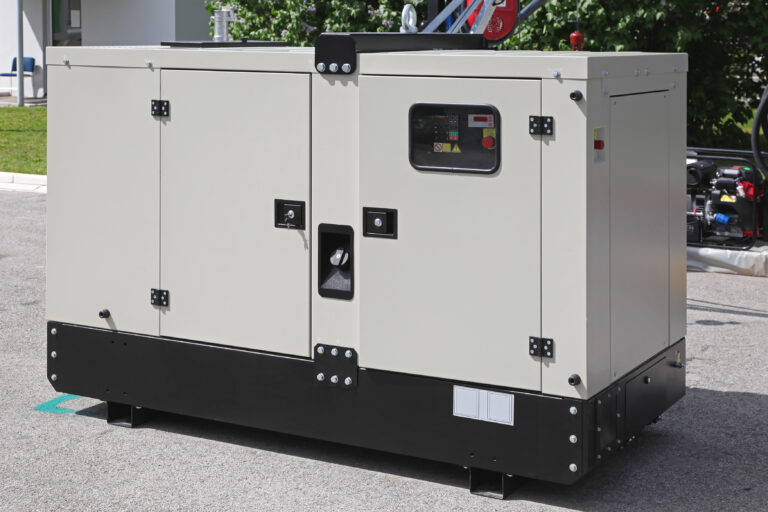
Noticing Issues With Your Generator?
Have you noticed lights flickering, or varying machine speeds (sudden shifts between fast and slow) when you’re running on backup power? This phenomenon is referred to as surging. Power surging caused by your generator is never normal and is a sign that something, somewhere within your generator is malfunctioning. In the rest of this article we will review the most common reasons your generator may be surging and give you a few ideas on how to combat it.
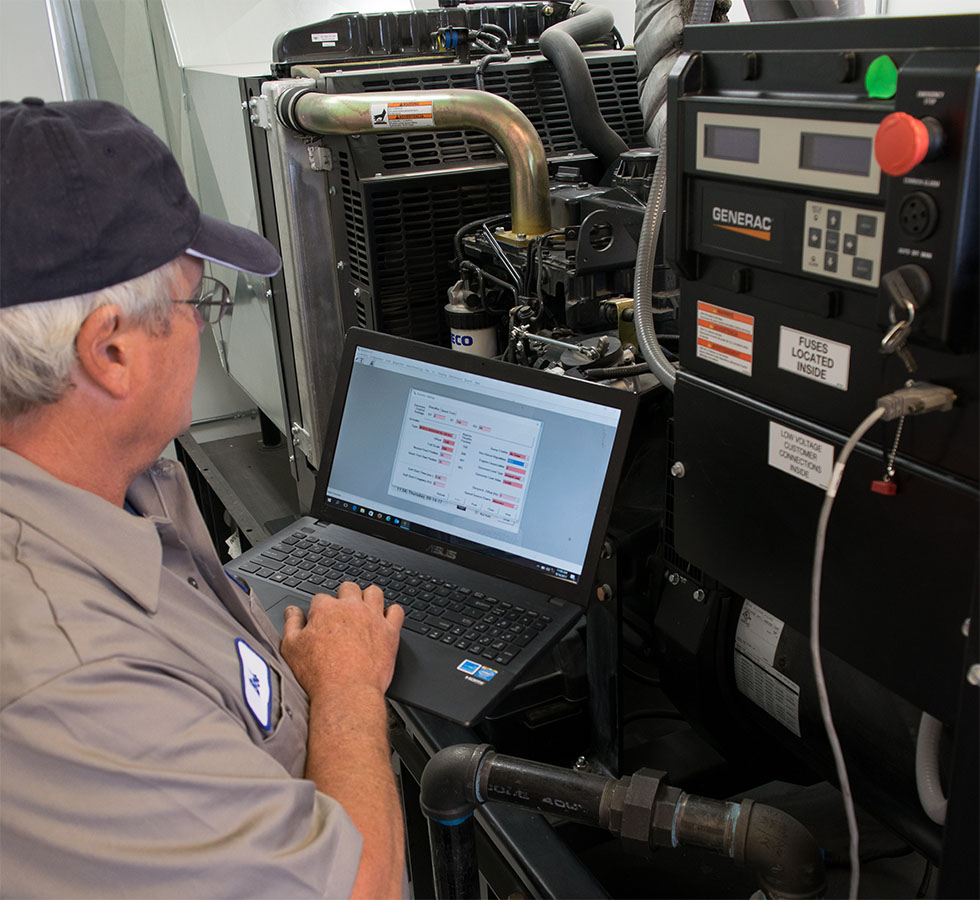
Old Age
As generators age, parts will inevitably wear out due to normal wear and tear and leave it prone to surging. If you begin to experience surges and your generator is nearing (or beyond) its expected service life, consider replacing it with a newer model.
Fuel Problems
Surging caused by fuel problems usually happens for one of three reasons: incorrect fuel, low fuel levels, or poor fuel quality. Most generators have specific fuel requirements and using any type of fuel outside of those parameters can cause operational issues, including surges.
Fuel blockages are another way that fuel could be the cause of generator surging, although much less common. To combat fuel blockages or restrictions, check the fuel filters and evaluate fuel quality to ensure nothing is clogging the fuel filter or fuel lines.
Faulty fuel pumps could also be a cause of surging. Ensuring that your fuel pump is in good condition is an important step in your search for the cause of surges. Check for any leaks in fuel lines or a blockage causing a decrease in fuel flow.
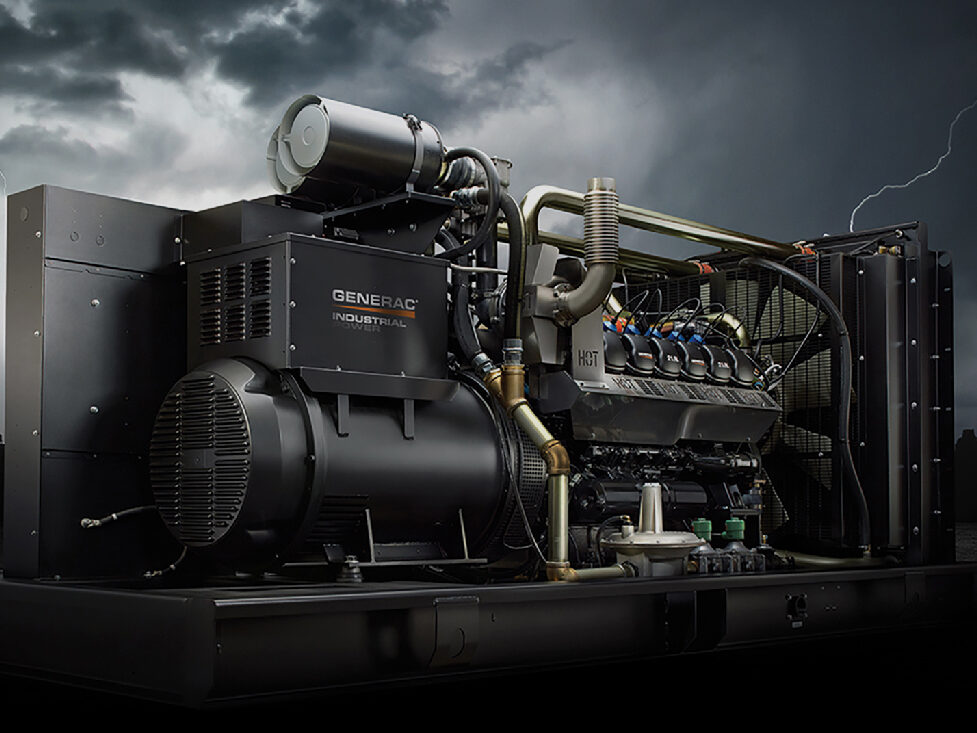
Poor Maintenance
Generators need regular maintenance, like any other piece of equipment, to keep them operating at peak condition. Neglecting your maintenance intervals can lead to not only increased wear and tear, but other more critical problems that could leave your generator more prone to surges.
Damaged Components
Damaged components within your generator could be the culprit in your search for the cause of surging. Damaged capacitors could be one example of a single component preventing your generator from properly generating and distributing power, leading to wild fluctuations in the regulation of power supply and distribution.
Sudden Start of Machinery
Starting large machinery while operating on backup power can cause a wild spike in load. This could put you beyond the range of your generators power production capabilities and cause the gen to struggle to keep up with power needs. Sometimes this will only cause a momentary drain in power to other equipment and then everything evens out and you don’t notice a difference in power quality. Other times, the added load is too much for your generator to keep up with and will cause surges in power or even shutdown of the generator completely due to overload.
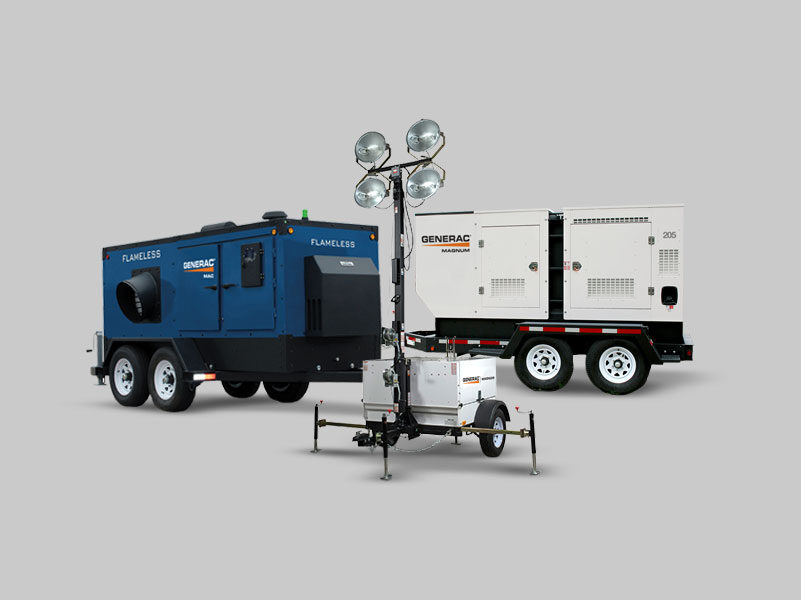
Unbalanced Load
Load can increase and drop rapidly depending on what you are trying to connect to backup power. It is very important to check that the load is equally balanced across all three phases. This is also a good time to ensure that you’re not overloading the generator, either continuously or with short spikes in load due to equipment startup. Motors are usually the biggest culprit in unbalanced load scenarios because of their large electricity requirements at the moment of startup.
Erratic Motors
Motors that drive machinery with fluctuating power needs are the largest culprit in the search for the cause of surging. Especially if the motors are older, and do not have a governor. This can cause large increases and decreases in the draw on power supply, causing erratic surges in power that can cause damage to all other electrical equipment supplied by the same backup power source.
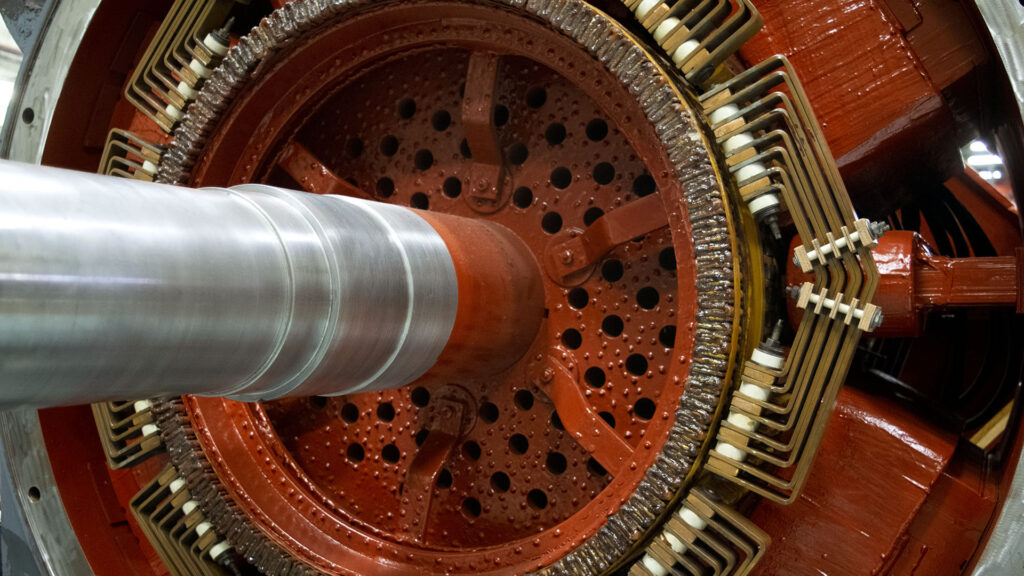
Non-Functioning or Intermittent AVR Failure
AVR stands for Automatic Voltage Regulator. An AVR is a small device that sits on the alternator and monitors the power output of your generator. It is there to maintain constant voltage and “utility-like” conditions to the equipment load. This is carried out under a wide variety of conditions, especially when the load on your generator can vary extensively. The AVR helps to smooth out the constant power output of the generator. An issue with the AVR can cause surges in power due to the lack of power control.
Less Likely Reasons
- Clogged Carburetor: A clogged carburetor is most often due to leaving fuel in the generator for a long period of time. Over time, some of the ingredients in the fuel may evaporate, leaving behind a thicker, stickier substance than can flow through the fuel system effectively. This sticky fuel can clog up the carburetor and cause the engine to stall or run rough. If the carburetor is clogged, try cleaning it with a carb cleaner. If cleaning the carburetor is not effective, you may need to rebuild or replace it before you see positive results.
- Faulty Spark Plugs: Inspect your spark plugs for signs of wear or damage. If the porcelain insulator is cracked, an electrode looks burned or otherwise damaged, or there is heavy carbon buildup at the electrode, then you need to replace the spark plug. To determine if a spark plug is defective, use a spark plug tester. You should see a strong spark between the tester’s terminals when the engine is cranking. If there is no visible spark, this is a strong indication that the spark plug is defective in some way and needs to be replaced.
- Clogged Fuel Filter: A clogged fuel filter is most commonly caused by old fuel. Like we discussed with the carburetor issue, over time, ingredients in the fuel evaporate, leaving behind a thicker, stickier substance. These sticky fuel leftovers can clog the fuel filter and cause the engine to stall or run roughly. If the fuel filter is clogged or otherwise faulty, replace the filter.
Call A Generator Technician
As previously discussed, power surges while you are running on backup power are never normal. Your generator should be able to supply constant “utility-like” power quality at all times. If you are noticing surging, and troubleshooting it yourself has gotten you nowhere, it’s time to call a qualified generator technician to help.
Need a Qualified Generator Technician to Assess the Problem? We Can Help!
Call 800-595-5315 Or Connect With Our Expert Technicians Here:
Other Articles
- Critical Spare Planning

- Where Do I Start On My Generator Installation?
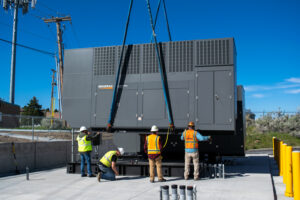
- How can Las Vegas heat lead to generator failures?


Lead Generator Technician
Graduated from Idaho State University with a degree in Heavy Duty Diesel and Onsite Power Generation. Damien is a master tinkerer and has been working on anything with a motor since he was about six years old. Besides being a generator fanatic, Damien is also an avid snowmobiler and aspiring world traveler.



My Predator 1400 inverter generator speeds up and slows down for the first 20 minutes running. This started maybe a month ago The generator is less than 6 months old. I use marine grade gas. I run it for an hour or so 4 or 5 times a week.
This is a very informative article. If there is a damaged component within the generator, are there other signs for us to know if this is the cause? Or should it be inspected by a professional?
thank you for the information